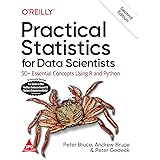Lottery Prediction-Comparison between Statistics and Luck
Lottery Prediction-Comparison between Statistics and Luck, statistics and luck all go hand in hand.
What Is Luck?
Probabilities and expected values of outcomes have a role in luck. The lottery is a wonderful example of this.
The expected value of the return on your investment is less than the amount you would have spent on lottery tickets based on the possibilities involved.
To put it another way, you have to be really lucky to overcome the enormous odds and win more money than you invested in lottery tickets.
One in 176 million people had a chance of winning that $540 million Mega Millions jackpot record.
These probabilities are sometimes contrasted with the likelihood of getting struck by lightning, which, per the National Weather Service, is one in one million for any given year.
The likelihood of being struck by lightning was 176 times higher than the likelihood of winning the Mega Millions jackpot.
Your chances of winning the lottery if you purchased 176 tickets and avoided repeating a combination of numbers are almost equal to the likelihood of being struck by lightning within a year.
Applications of Data Science in Education – Data Science Tutorials
Contrasting good and bad luck
Despite the fact that getting struck by lightning may be viewed as unfortunate, I truly view my unharmed state as a blessing.
Only 10% of persons who are struck by objects die, while the majority of survivors have ongoing injuries.
Strangely, winning the lottery is frequently likened to all kinds of terrible things, including dying in a car or aircraft catastrophe, being murdered, contracting a flesh-eating disease, and other similar scenarios.
It’s funny how we contrast things we want to avoid with things we really want. Let’s contrast two methods for becoming a millionaire instead.
We’ll contrast the lottery strategy with the savings strategy. We’ll make the assumption that you spend or invest $1,000 each month for 30 years, totaling $360,000 in both cases.
Kerala Lottery Result Today » Live » Winning Numbers
Investment Approach
If you put $1,000 away each month for 30 years and earn 6% annually, you will have $1 million in your account.
The odds of winning a million dollars through systematic investing are, of course, much higher than those of winning a million dollars through the lottery.
I chose a 6% return because the stock market’s worst-ever 35-year return per year was 6.1% (or more).
The 35-year return on average is 9.7% annually. I’m actually being cautious here. There were no 30-year rolling returns to be found.
However, even if you anticipate a 0% return, you’d still earn twice as much as you would with the lottery strategy!
In a nutshell, based on realistic expectations, investing in the stock market requires less chance than winning the lottery to become a millionaire.
When you overcome the odds and accomplish the unexpected, you have good luck.
You are fortunate if you overcome the long odds and win the lotto prize. I defied the odds when lightning struck me and wasn’t hurt.
Data Science Applications in Banking – Data Science Tutorials
Statisticians and Luck
Statistics professionals are typically uncomfortable with luck. We are all too aware that luck involves relying on improbable and uncommon outcomes.
And we are fully aware of how uncommon they are! Having said that, we do incorporate a unique sense of luck into our studies.
I believe that how we treat error is the statistical concept that comes the closest to describing luck. The difference between the observed value and the expected value is known as an error.
In the lottery example, $180,000 is the expected value of the return on the $360,000 spent on tickets. Very few people, though, will actually fall exactly at $180,000.
The actual winnings are centered and dispersed about $180,000. The majority of wins will be toward the middle, but a few will be far from either side.
Your luck, or error, is the difference between the value that is anticipated and the value that you individually achieve.
If you’re extremely lucky, your positive mistake will place you far to the right of the distribution center. Unlucky? If you make a mistake, you will be on the left.
Top Data Science Applications You Should Know 2023 (datasciencetut.com)
Statisticians Minimize the Role of Luck
In our investigations, statisticians work to quantify, regulate, and reduce the influence of chance (error).
In order to do this, we adhere to specific guidelines that help to guarantee that our faults are symmetric and random.
The right variables are incorporated into our models by statisticians in order to account for the observed variation and lower the amount of unexplained error.
We do this to get a better understanding of the real function that the variables have. Large inaccuracies should not muddy the picture in any way!
In quality management, this is also valid. We got lucky this week and had 10 items fall under the spec limitations, but a quality analyst would never say that.
Instead, they meticulously monitor, evaluate, and manage the variables that have an impact on their product.
The process output’s expected values are specifically created to stay inside the specification’s bounds, and errors are kept to a minimum.
In other words, analysts greatly reduce the requirement for luck.
Don’t Depend on Luck!
In general, I like to avoid depending on chance. I believe it is preferable to recognize and comprehend the variables that affect the anticipated result in every given circumstance.
Then you select the scenarios that maximize the anticipated result. This strategy allows you to work with the odds rather than against them.
Buying lottery tickets repeatedly is not part of a good retirement strategy.
On the other hand, it doesn’t depend on outperforming the market, which requires too much chance.
Finally, read this article to see how one statistician successfully deciphered the scratch lottery code if you’re curious about what would happen if a statistician played the lottery methodically.
As I previously mentioned, statisticians seek to reduce the role of luck.



